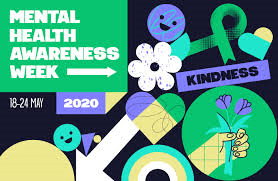Today marks the beginning of Mental health Week 2020

The theme of kindness was chosen because of its singular ability to unlock our shared humanity. Kindness strengthens relationships, develops community and deepens solidarity. It is a cornerstone of our individual and collective mental health. Wisdom from every culture across history recognises that kindness is something that all human beings need to experience and practise to be fully alive.
Helping others feels good – There is some evidence to suggest that when you help others, it can promote physiological changes in the brain linked with happiness.
Helping others can also improve our support networks and encourage us to be more active.4 This in turn can improve our self-esteem.
Kindness creates a sense of belonging and reduces isolation – Volunteering and helping others can also help us feel a sense of belonging, make new friends and connect with our community.3,4 Face-to-face activities such as volunteering at a food bank can help reduce loneliness and isolation.
Kindness helps keep things in perspective – Many people don’t realise the impact that a different perspective can have on their outlook on life.
Helping others, especially those who are less fortunate than yourself, can help to put things into perspective and make you feel more positive. There is some evidence that being aware of your own acts of kindness, as well as the things you are grateful for, can increase feelings of happiness, optimism, and satisfaction.Doing good may help you to have a more positive outlook about your own circumstances.
Kindness helps make the world a happier place – it’s contagious! – Acts of kindness have the potential to make the world a happier place. An act of kindness can improve feelings of confidence, being in control, happiness and optimism.
Kindness may also encourage others to repeat the good deed that they’ve experienced themselves – contributing to a more positive community.
The more you do for others, the more you do for yourself – The benefits of helping others can last long after the act itself, both for you and them.

